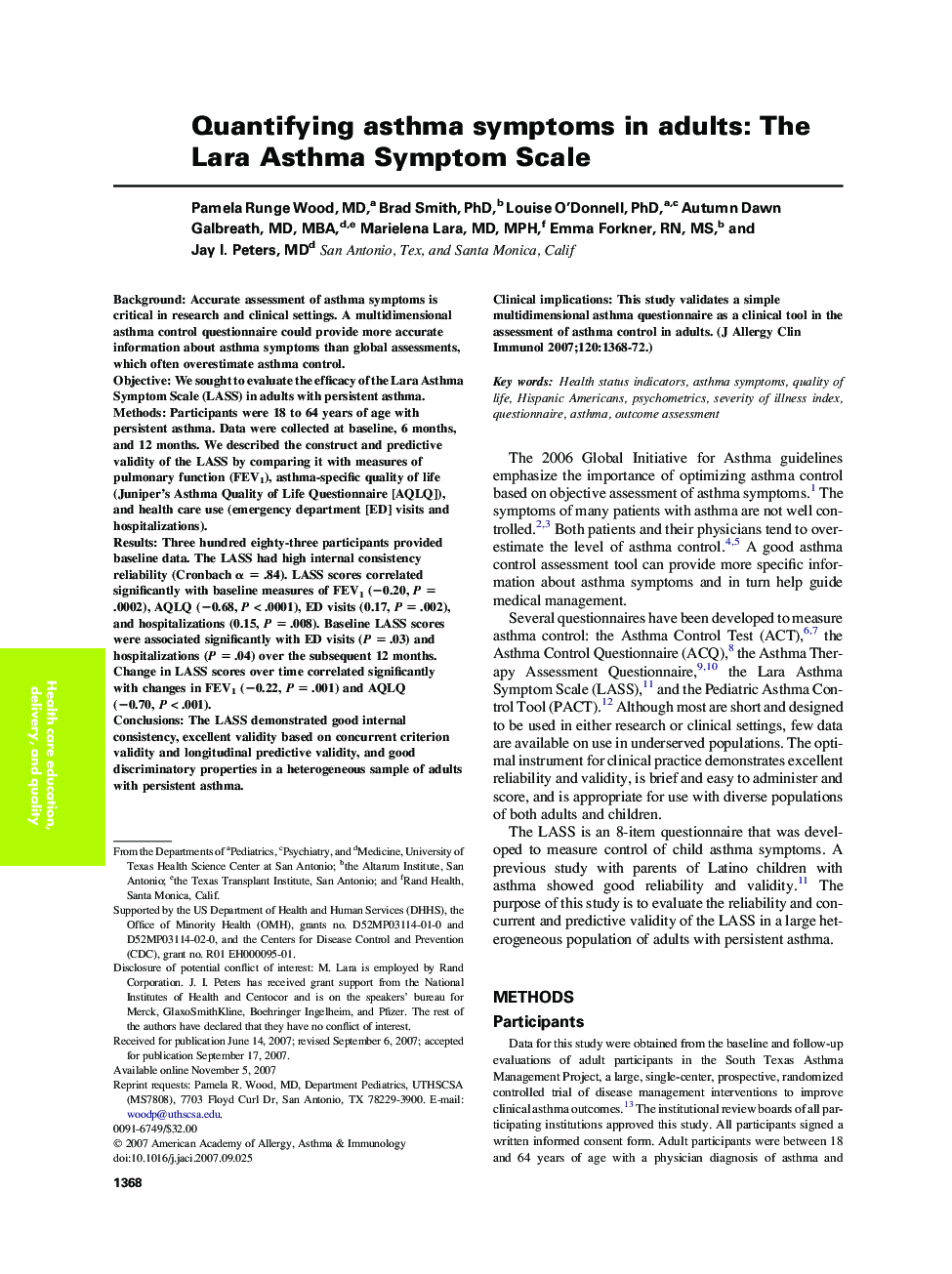| Article ID | Journal | Published Year | Pages | File Type |
|---|---|---|---|---|
| 3201276 | Journal of Allergy and Clinical Immunology | 2007 | 5 Pages |
BackgroundAccurate assessment of asthma symptoms is critical in research and clinical settings. A multidimensional asthma control questionnaire could provide more accurate information about asthma symptoms than global assessments, which often overestimate asthma control.ObjectiveWe sought to evaluate the efficacy of the Lara Asthma Symptom Scale (LASS) in adults with persistent asthma.MethodsParticipants were 18 to 64 years of age with persistent asthma. Data were collected at baseline, 6 months, and 12 months. We described the construct and predictive validity of the LASS by comparing it with measures of pulmonary function (FEV1), asthma-specific quality of life (Juniper's Asthma Quality of Life Questionnaire [AQLQ]), and health care use (emergency department [ED] visits and hospitalizations).ResultsThree hundred eighty-three participants provided baseline data. The LASS had high internal consistency reliability (Cronbach α = .84). LASS scores correlated significantly with baseline measures of FEV1 (−0.20, P = .0002), AQLQ (−0.68, P < .0001), ED visits (0.17, P = .002), and hospitalizations (0.15, P = .008). Baseline LASS scores were associated significantly with ED visits (P = .03) and hospitalizations (P = .04) over the subsequent 12 months. Change in LASS scores over time correlated significantly with changes in FEV1 (−0.22, P = .001) and AQLQ (−0.70, P < .001).ConclusionsThe LASS demonstrated good internal consistency, excellent validity based on concurrent criterion validity and longitudinal predictive validity, and good discriminatory properties in a heterogeneous sample of adults with persistent asthma.Clinical implicationsThis study validates a simple multidimensional asthma questionnaire as a clinical tool in the assessment of asthma control in adults.
